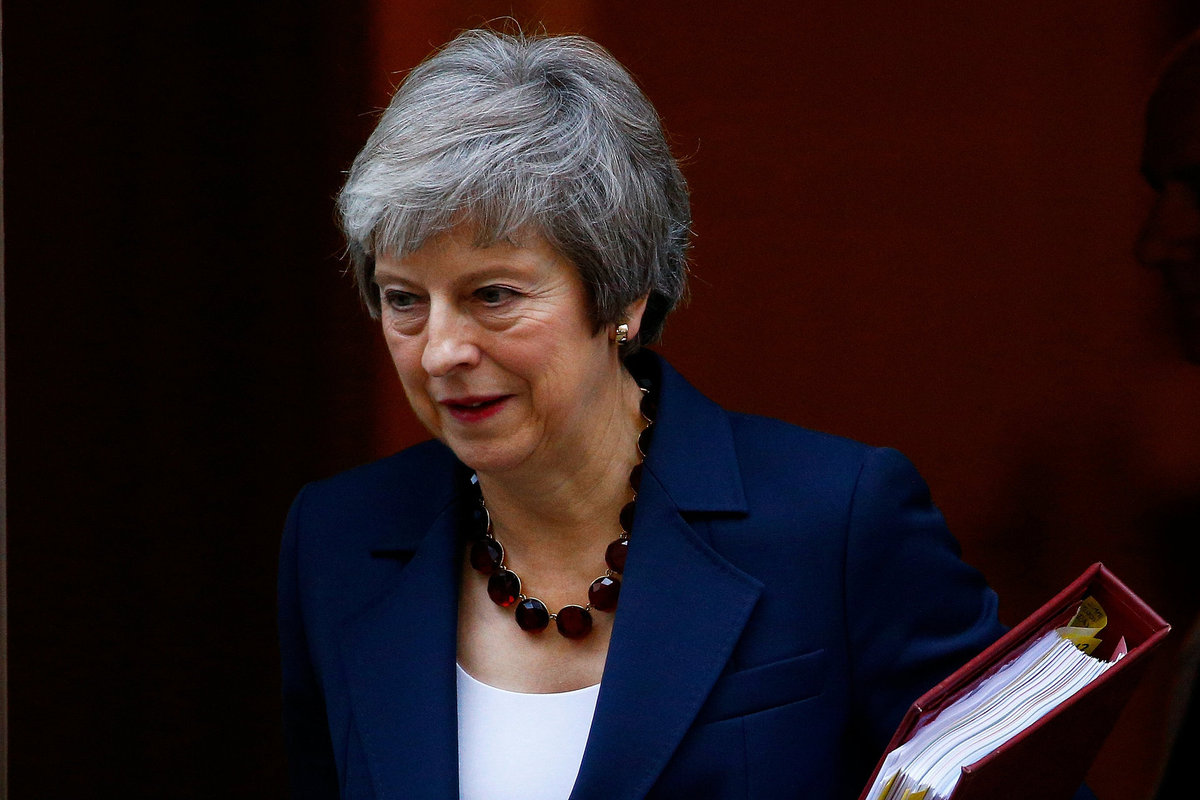British PM hails Brexit deal but must sell it to doubtful ministers


LONDON - Downing Street official says British Prime Minister Theresa May expected to make statement outside her office following cabinet meeting approx 17:00 GMT.
May hailed her draft European Union divorce deal on Wednesday but must convince ministers to back her plan amid open hostility from some of her own members of parliament who say it threatens the United Kingdom's unity.
Her minority government means May is the weakest British leader in a generation, yet she must try to get her Brexit deal, struck after more than a year of talks with the EU, approved by parliament before leaving the bloc on March 29, 2019.
"I'm confident that this takes us significantly closer to delivering on what the British people voted for in the referendum," May told parliament. Britons voted 52-48 percent in favour of leaving the EU in 2016.
The British cabinet began meeting at 1400 GMT to discuss the accord. The Daily Telegraph newspaper reported two ministers who strongly supported Brexit would quit.
May's plan is an attempt to forge a balance between those who want Britain to maintain close links to the world's biggest trading bloc while having full control over issues such as immigration and judicial oversight.
"We will take back control of our borders, our laws and our money, leave the Common Fisheries Policy and the Common Agricultural Policy, while protecting jobs, security and the integrity of the United Kingdom," May said of the deal.
But Brexit campaigners in May's Conservative Party, which for three decades has been divided over Europe, said it was a surrender to the EU and they would vote it down.
The Northern Irish Democratic Unionist Party (DUP) which props up May's government, said it would not back any deal that treated the British province differently from the rest of the United Kingdom. Opposition Labour Party leader Jeremy Corbyn called it a "botched deal".
At the heart of May's difficulties has been the so-called Northern Irish backstop, an insurance policy to avoid a return to controls between the British province and EU-member Ireland which could threaten the 1998 peace accord which ended 30 years of violence.
EU sources said the draft accord envisaged a July 2020 decision on what would have to be done to safeguard an open Irish border after the post-Brexit transition runs its course if a new trade deal is not in place.
If not, Britain would have to extend the transition period once beyond December 2020, possibly until the end of 2021, or go into a customs arrangement that would cover all of the United Kingdom but in which Northern Ireland would be aligned more closely with the EU's customs rules and production standards.
Treating Northern Ireland differently risks alienating the DUP who warn it could risk the integrity of the United Kingdom, while Brexit-supporting members of parliament argue it could leave Britain subject to EU rules indefinitely.
































